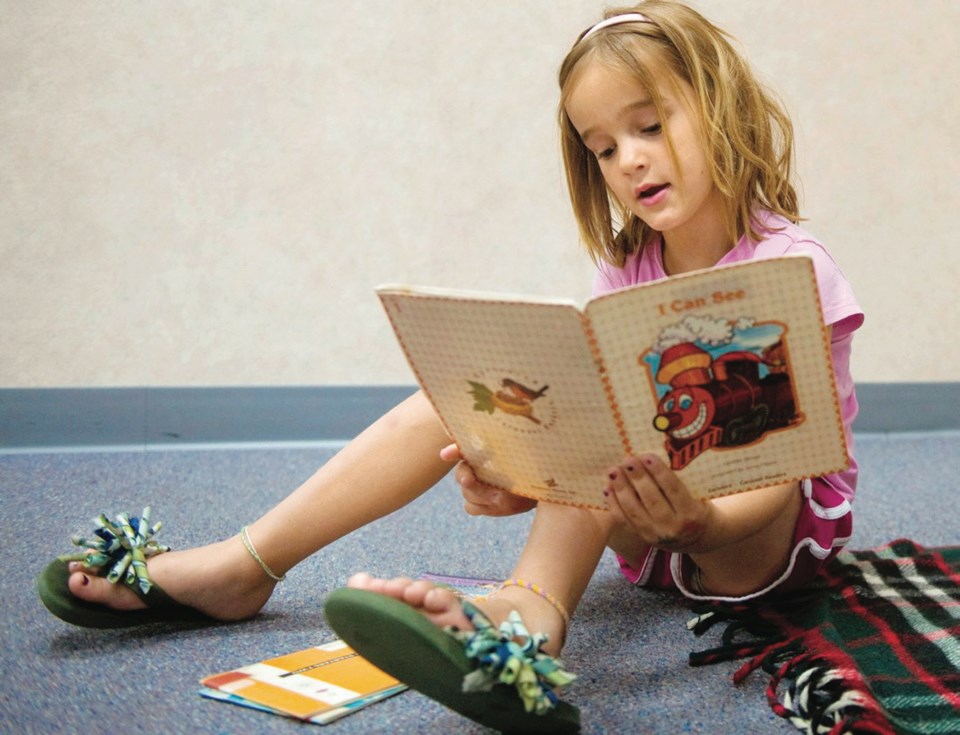The worst thing about dyslexia is not reading difficulties, but the emotional damage if it’s not diagnosed early, says an expert who is giving a free talk in Victoria this month.
“You can go through years and years and years of special help from a school, outside help from reading specialists, reading recovery, vision therapy and occupational therapy,” Susan Barton, founder of Bright Solutions for Dyslexia, said in an interview.
“And if it’s not picked up and identified, it just gets worse and worse and worse. Then you get the emotional damage of feeling stupid and dumb and defective, and getting teased by other kids.”
Barton said the emotional trauma is unnecessary because with a proper diagnosis and specialized teaching, any child or adult with dyslexia can become a competent reader.
“We know how to fix the reading, writing and spelling problem that will give them success in school and success in life,” Barton said from San Jose, Calif. “There is no reason for them to struggle.”
Barton will be in Victoria Sept. 25 for a free lecture and workshop sponsored by the Maria Montessori Academy.
She said she became interested in dyslexia after her nephew was diagnosed. The bigger problem with him, however, was it was not identified until he was 16, and his school years were very difficult.
“Unfortunately, kids are still going through this,” Barton said. “That’s why I got into this — to prevent anybody else going through what my nephew experienced.”
Dyslexia is a learning disability mostly associated with difficulty reading and comprehension, despite normal or often above-average intelligence.
The stereotypical, and mostly inaccurate, perception of the dyslexic reader and writer has the child printing letters backwards or upside down.
But according to Barton, the real difficulty lies with hearing and processing of sounds. The dyslexic brain has difficulty noting and distinguishing the various sounds and syllables of spoken words and then coding them into our phonetic alphabet.
So spelling is often atrocious. Nothing frustrates a child with dyslexia more than having somebody say to them “just sound out the word.”
As children, they may love poems and Dr. Seuss, but they have no conception of how to compile words that rhyme.
A dyslexic child can have trouble finding words to rhyme with even a simple word like “cat.” Instead of “mat” the are more likely to reply with a word like “kitten.”
Specialized education generally helps dyslexic children, and adults, to compensate for the disorder. It can be learning to decode the various sounds of words or it can even be multisensory instruction involving visual, auditory, body movement or even tactile clues to help dyslexic people compensate.
But Barton said the important thing to keep in mind is special education, designed for people with dyslexia, works.
“There is a rumour out there that says, ‘If you don’t catch it before age nine, it’s too late,’ and that is not true,” she said.
“They can all learn to read. You can even develop a love of reading in these guys.”
She also said people should recognize the dyslexic brain can bring enormous gifts.
People with dyslexia are often very good at working in three-dimensional or spatial planning, so they can be architects, fashion designers or sculptors.
They can also have incredible people skills and be very sensitive and empathetic to the moods and thoughts of others.
“They are a very odd mixture of weaknesses and incredible strengths,” Barton said.
“And when you talk to them, they can be so bright and such original thinkers, you would have no idea how much they struggle to get their thoughts down on paper.”
Barton speaks Sept. 25 at 6:30 p.m. at the First Unitarian Church of Victoria, 5575 W. Saanich Rd. The event is for adults only.
Admission is free but registration is required. Go online to BartonVictoria.EventBrite.com or call Maria Montessori Academy at 250-479-4746.



